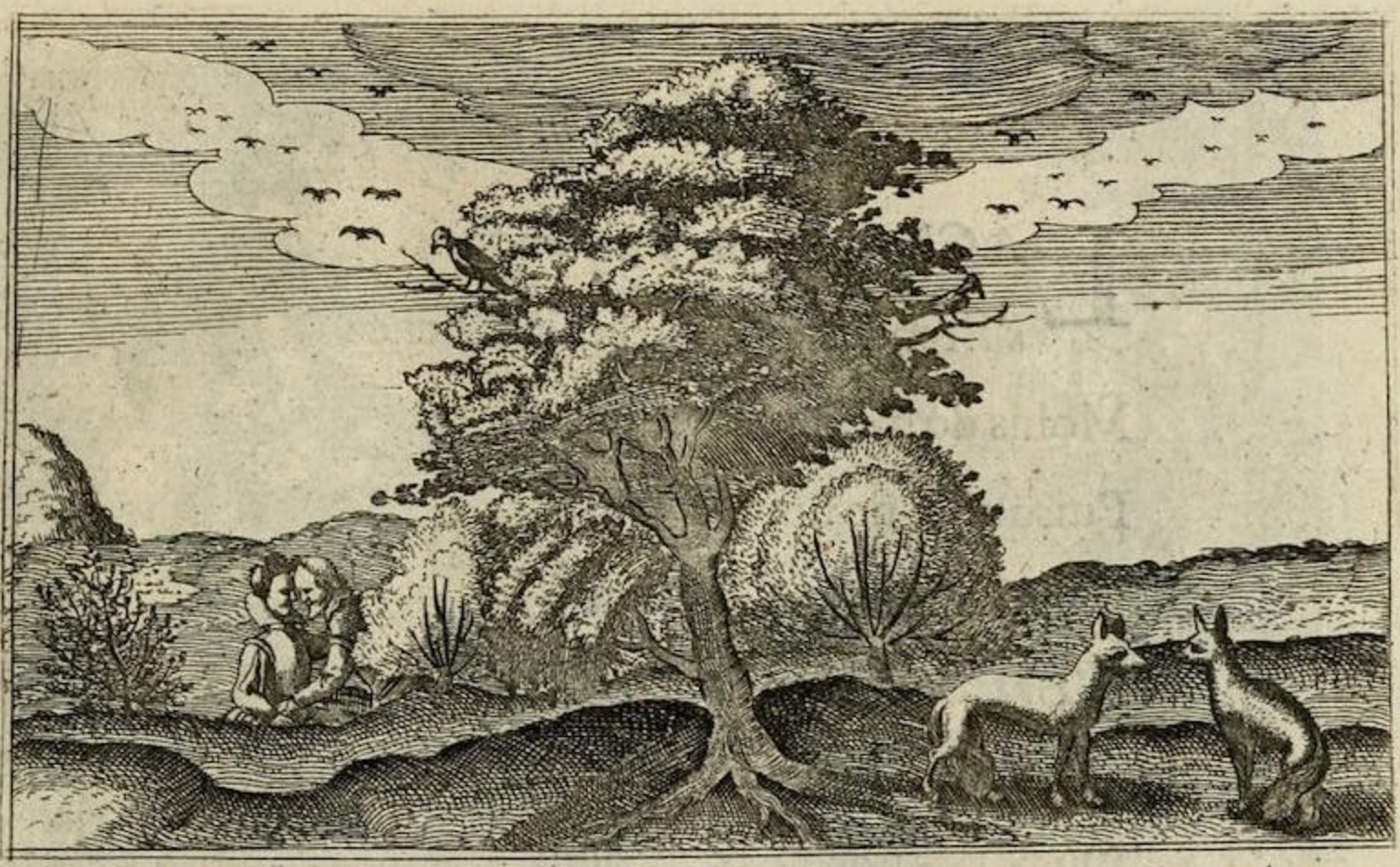Playing Games with Ludwig Wittgenstein
Nicko Mroczkowski April 2nd, 2024
What is the meaning of a word? When we talk about what words mean, we usually imagine something like a dictionary, which pairs up words with the things they stand for. So, somewhere in our heads, we’ve stored the sound corresponding to the word ‘apple’, and this entry is linked with our idea of the sweet fruit of certain trees. We are English speakers to the extent that we have a large repository of knowledge of this type, a dictionary in our minds that pairs sound to meaning.
According to the German philosopher Ludwig Wittgenstein, this picture of the way language works is an illusion that has a sinister hold on us. It forms the basis of most theories in linguistics, it governs the way we navigate the law, it has come to define the architecture of AI language models, as well as our approaches to understanding literature, our common sense thinking about language itself, and how we learn and use it. Perhaps we don’t notice, then, that it rests on a principle of constant deciphering, or translation: it treats words as strings of code that must be translated into the concepts that we’re bringing to the listener’s attention. Just as a novice French learner will read une pomme and connect this with the English word ‘apple’, so will they hear the word ‘apple’ in their native language and ‘translate’ it into the image or concept of an apple.
The problem, as Wittgenstein points out, is that this ‘translation’ doesn’t actually seem to occur in real time; this notion is not faithful to the genuine experience of using language. If I’m at the shop, and I ask the attendant for three red apples, do they first count up to three, retrieve the colour red in their minds, and call up an image of an apple? Surely not – they just grab the things! Maybe, you could say, these processes do occur, but so quickly, due to training and habit, that it is imperceptible. Suppose, then, that I ask the attendant to work faster – do they think up an abstract representation of speed, and communicate it to their body? And should they, unimpressed with this request, utter a single expletive – how should I translate it? What ‘concepts’ do swear words used in this way, or other expressions like ‘ouch’, correspond to? In a living context, believing that meaning is all about translation leads to some absurd consequences.
In fact, in this regard, living contexts tend to be stranger than we initially realise. When among very close friends, we use words and names in ways that might be unintelligible to other listeners, even though we’re still using plain English. Our shared history, memories, and inside jokes imbue our conversations with meanings that go far beyond the dictionary definitions of the words we’re using. Or, to take a more famous case: if I were to ask you, reader, what colour Wednesday is, you would most likely have an answer that we could discuss, and agree or disagree upon. Where, in the normal concept of ‘Wednesday’, is there anything to do with its colour? Is there a separate mental dictionary for cases like this?
The fact is, when it comes to language, context is everything; it accounts for much more than whatever could be written down in a dictionary. This is the core of Wittgenstein’s argument. Language, he observes, is like a box of tools, each with different uses that can be adapted to any purpose. There is no one theme that unites each of these things as tools – the hammer is for striking, the tape for measuring, the nails for fastening – except that they are there, at the ready, in the same place. If it has a use, it could find its way in there, and there is no principle that determines what belongs. In just the same way, there is no general theory of language or what we can do with it.
Le Centre de l’Amour (ca. 1687), Peter Rollos
Instead, we can speak of what Wittgenstein calls ‘language-games’: distinct but loosely defined activities that make use of the spoken or written word. Requesting and retrieving items at a shop is one example. Wittgenstein himself offers some other notable ones – telling a joke, reporting an event, asking, thanking – but really, there are as many language-games as there are things that human beings do with each other. This is the point: language is not separate from action, but belongs to it, and develops alongside it. ‘In the beginning was the deed,’ writes Wittgenstein, citing Goethe’s Faust; in other words, human activity exists before language, which forms just a part of it. We don’t speak first and act after.
Our modern scientific disposition, it seems, has made us believe that the main function of language is to sit outside the world, describe it, and state facts – to communicate knowledge. But this is just one of the things we do with it, and we don’t even do it that often. We do so many other things with each other; we eat, love, play, build, teach, inspire. These are real grounds of language. Wittgenstein calls them ‘forms of life’; what he means by this, in an intentionally loose way, is whatever a community of language-users does as part of its way of living. Forms of life are the smaller elements that make up a way of life; for example, a fishing community has customs and practices relating to different ways of catching fish, cleaning and preparing them, building and maintaining boats, trading, et cetera, each with their corresponding language-games. These things are ultimately cultural. So asking about the language of a community is like asking about its cuisine – what’s available, and what do they do with it?
When we think about the meaning of a word, then, this is the real question – what do we do with it? After all, recalling our shop attendant from earlier, just having a mental picture of three red apples is not enough to do their job; they need to know where the apples are, what to do with them, and how much to charge. If they stand there thinking about apples, they haven’t understood me; translation is not enough for meaning. And meaning counts for more than the ability to translate – it goes the other way, too. Learning what a word means is also learning about the form of life it belongs to. If I tell you that ‘deglazing’ means using liquid to dissolve the caramelised bits left over from frying something in a pan, I haven’t just told you the name of a technique – I’ve also taught you how to do a little bit of cooking, and how to follow a recipe that calls for it.
Like his predecessor Kant, Wittgenstein sought to shift our philosophical priorities away from the single-minded pursuit of total knowledge, towards an appreciation of the humble beauty of everyday life and thinking. He recognised that a perfect theory of language would get us no closer to illuminating the other mysteries of human experience; each of these things is ‘just there, like our lives’. The point is to live.
Nicko Mroczkowski


